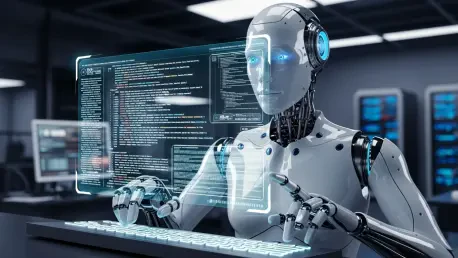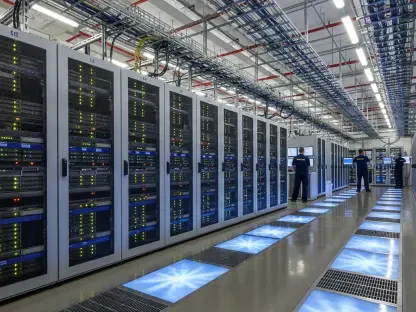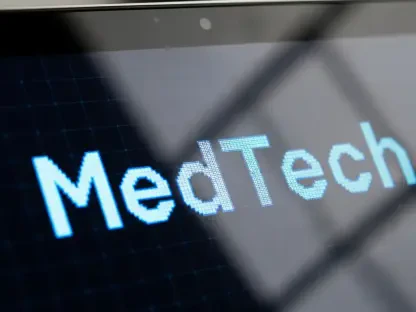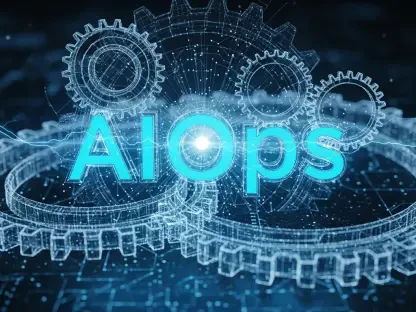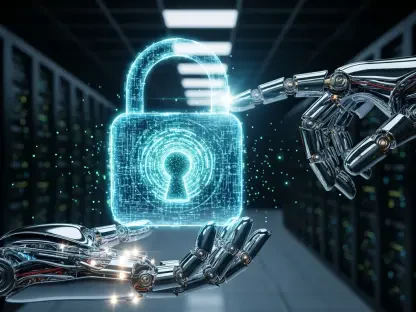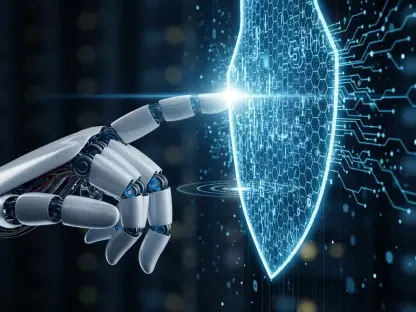I’m thrilled to sit down with Anand Naidu, our resident development expert who brings a wealth of knowledge in both frontend and backend technologies. With his deep understanding of various coding languages, Anand offers invaluable insights into the rapidly evolving world of software development. Today, we’re diving into the hot topic of AI’s role in coding, exploring bold predictions about its future, the real impact it’s having right now, and the concerns many developers share about trust and job security in this transformative era.
How did you react when you first heard the prediction that AI would be writing 90% of code within just six months?
Honestly, I was pretty skeptical when I first heard that. It sounded incredibly ambitious, almost like a marketing pitch rather than a realistic timeline. Six months is a blink in tech terms, and while AI has made huge strides, getting to 90% seemed like a massive leap. I figured we’d see growth in AI’s role, but not at that scale so quickly. Now that we’ve passed that mark, I think it’s clear the prediction was overly optimistic, though it did spark some important conversations about where we’re headed.
What’s your take on whether that kind of timeline for AI dominance in coding could ever be realistic, even if it’s further out?
I think it’s possible, but we’re talking years, not months. The tech is advancing fast, but there are still huge hurdles—things like context understanding, complex problem-solving, and ensuring code quality. AI can churn out boilerplate code or assist with repetitive tasks, but the nuanced, creative aspects of development still need human oversight. I’d say we might get closer to a high percentage in specific niches, like web development, within a decade, but across all coding? That’s a much longer journey.
How is AI currently shaping software development in your own experience or within the industry you observe?
AI is definitely making waves. In my own work, I’ve used tools to help with debugging, generating snippets, and even drafting initial structures for projects. It’s like having a super-smart assistant. Across the industry, I see a lot of developers leaning on AI for productivity—think automating tests or suggesting optimizations. But it’s not a full replacement. I’d estimate maybe 15-20% of my routine tasks are aided by AI, and that’s probably on the higher end compared to some of my peers who are more cautious about integrating it.
When you hear stats like 25% of code at some big tech companies being AI-generated, what goes through your mind?
Those numbers are impressive, no doubt, but I take them with a grain of salt. Big tech has the resources to integrate AI at scale, with custom tools and massive datasets to train on. For them, 25% or even 30% makes sense in controlled environments. But I don’t think it reflects the broader industry. Smaller companies or independent devs aren’t seeing those percentages yet. It’s not surprising for tech giants to lead the charge, though—it aligns with the experimental vibe I’ve seen in those spaces.
There’s a lot of buzz and worry among developers about AI potentially taking over their jobs. How do you feel about that narrative?
It’s a valid concern, especially when you hear industry leaders talk about reducing the need for engineers. I’m not personally worried about my own role just yet—there’s still so much that requires human judgment. But I get why it’s unsettling, especially for folks just starting out. I think the narrative is a bit overblown, though. AI is more of a tool than a replacement right now. In five or ten years, I see developers shifting to more strategic roles—overseeing AI outputs, solving higher-level problems, and focusing on innovation rather than raw coding.
Speaking of newer developers, there’s talk that entry-level roles might be the hardest hit by AI. What’s your perspective on that?
I agree to an extent. Entry-level tasks—like writing basic scripts or fixing small bugs—are exactly the kind of repetitive work AI excels at. It’s tougher for recent grads to stand out when tools can handle those starter jobs. That said, it’s not impossible to break in. Companies still need fresh talent for learning and adapting to new challenges. The barrier is higher, though, and new devs might need to focus on niche skills or soft skills like collaboration to differentiate themselves.
Many developers seem hesitant to fully trust AI-generated code due to accuracy or security issues. Have you encountered similar concerns in your work?
Absolutely. I’ve had moments where AI spits out code that looks good on the surface but fails under specific conditions or introduces vulnerabilities. I’ve spent just as much time fixing AI suggestions as I would have writing the code myself sometimes. Security is a big worry—AI doesn’t always consider edge cases or compliance needs. It’s why I, and a lot of others, double-check everything. Trust is growing as the tech improves, but we’re not at a point where I’d let AI run unsupervised.
What’s your forecast for the role of AI in software development over the next few years?
I think AI will become even more integrated, probably handling a larger chunk of routine coding tasks—maybe up to 40-50% in some domains within five years. But the human element won’t disappear. We’ll see a hybrid model where developers focus on design, ethics, and complex integration while AI takes the grunt work. The big question is trust—if tools can address accuracy and security concerns, adoption will skyrocket. I’m optimistic, but cautious. It’s going to be a fascinating evolution to watch.
